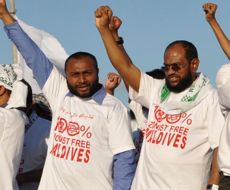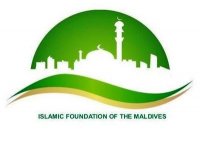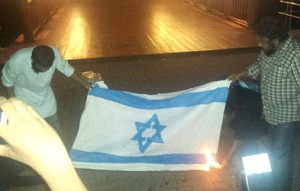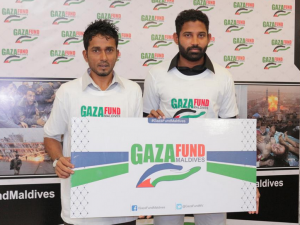Anti-semitism, racism, xenophobia and religious intolerance “are deeply entrenched” in political parties currently opposed to the Maldivian Democratic Party (MDP), former Foreign Minister in both Nasheed and Gayoom’s government, Dr Ahmed Shaheed, has said.
Dr Shaheed’s comments follow reports in local media summarising US Embassy cables first published by Wikileaks in 2009, and discussed during the then-opposition parliament’s efforts to impeach the foreign minister.
In particular, the Maldivian government’s engagement with Israel was the subject of a parliamentary debate November 9, 2009, in which Shaheed narrowly avoided impeachment following a no-confidence motion.
Opposition to the Maldives’ recognition of Israel was seized by then opposition groups in December 2011 as a sign of the Nasheed government’s “anti-Islamic” policies. The previously disparate parties formed the ‘December 23 coalition’, following a large rally in Male’.
Dr Shaheed said “Growing extremism hurts the Maldives rather than anybody else, because whenever a state is unable to deliver what is in the public interest due to intimidation from others, it is the state that suffers.”
“The growth of extremism itself has numerous causes, but none of it is linked to government policy towards Israel or Palestine,” he added.
Many Maldivians firmly believe that policies pursued by Israel affect their solidarity with Arabs and other Muslims, Dr Shaheed explained.
“We care about how Israel treats the Palestinian people, because we care about the safety of the Muslim holy places under Israeli jurisdiction, and because we need to have a dialogue with Israel communicating our interests and concerns on these matters regularly,” he said.
More space for civic reasoning in Maldivian politics is needed for the Maldives to “behave like the rational nation-state, with friendship towards all, that we claim we are,” he said. “Silence may be golden but dialogue is the miracle tool of diplomacy.”
In the original cable referred to by Sun Online, Dr Shaheed told then US Ambassador Robert Blake that he believed “radical clerics ignited a reaction” among the Maldivian population and this was “a lot, but not a genuine undercurrent.”
Dr Shaheed “highlighted that former President Nasheed pledged to “renew ties” with Israel in his September 24 (2009) UN General Assembly speech,” that the Maldives Defense Minister and Minister for Natural Disasters would visit Israel later that year, and both nations “have already signed agreements on health, education, and tourism”.
Speaking to Minivan News, Dr Shaheed said he believed MDP’s rivals considered the cables “the perfect fog-machine to distract any discussion of bread and butter issues in the campaign.”
“Many in the Maldives see the Palestinian-Israeli dispute in religious terms, and religious sensitivities are played up during election time,” he added.
The Ministry of Foreign Affairs meanwhile told Minivan News the Maldives is “not against Israel”.
“The Maldives’ government always supports Palestinian citizens to have their freedom and urges this in the United Nations,” said Foreign Ministry Spokesperson Muaz Ali.
“This does not mean Maldives is against Israel,” he said.
“Anti-semitism, racism, xenophobia and religious intolerance”
“Neither former President Maumoon Gayoom nor former President Mohamed Nasheed divided the world into a Dar al- Harb and a Dar al- Islam as in classical Islamic international relations theory, which is what the Salafists in the Maldives want to do,” stated Shaheed.

Shaheed explained that “anti-semitism runs deep in certain sections of Maldivian society”, highlighting as an example an article published in Dhivehi on local news website Dhi-Islam in January 2011, reporting on the agreements made between the Maldivian and Israeli government.
“Under this heinous agreement, these people have thrown the little children and the youth of the Maldives, as well as the country’s education sector and the health sector and many other matters, into the lap of the evil Zionist Israelis, who, as we have been informed through the seven heavens, will never wish anything but evil for Muslims,” the article reads.
“Jews have even historically been an evil people who have been cursed because they had killed prophets and spread corruption on earth, and that they are the biggest enemies of Muslims is proven by the teachings of the Holy Quran and forms of the core beliefs of Muslims. This agreement will impose pressures to prevent the dissemination of these teachings,” it adds.
The report claims that Jews have falsely exaggerated “incidents” of torture and killings during the Holocaust “to inculcate sympathy towards Israel in the minds of Maldivian youths; to convince the Maldivian youths that the jews are the victims of oppression and to make them blind and insensitive to the occupation of Palestine, the seizure of Muslim holy lands, and the endless oppression the jews inflict on the inhabitants of the land.”
“This agreement is high treason or the highest form treachery against the noble Islam and Maldivian identity, upon which this country is founded. It is a matter far more dangerous and grave than can be treated lightly,” said the report.
Historical Maldivian – Israeli relations
There is no document to support the claim that Maldives ever severed diplomatic relations with Israel, in Maldivian or Israeli records, explained Dr Shaheed.
Instead, what appears to have happened is a downgrading of the relationship where no Maldivian president since the early 1970s has been willing to receive an Israeli ambassador formally in his office.
The Maldives voted at the UN to accept the legitimacy of Israel, on December 17, 1991, at the request of then President George Bush, by repealing the 1975 UN resolution equating zionism with racism.
“The Maldives was not alone in changing its policies towards Israel – there were a number of Organisation of Islamic Cooperation (OIC) states doing the same thing, or had even restored full diplomatic relations,” said Dr Shaheed.
“Under Gayoom, the Maldives categorically accepted the two-state solution. All of these actions were firmly grounded in international law and state practice,” he added.
The Maldivian government discussed the question of restoring ties with Israel following the Oslo Accord agreement in 1993, which established a peace process framework to resolve the Palestinian-Israeli conflict.
Israel agreed to recognize Yasser Arafat as its partner in peace talks and essentially exchanged land for peace. The Palestinians in turn recognized Israel’s right to exist while also renouncing the use of terrorism and its long-held call for Israel’s destruction.
The Gayoom cabinet agreed on a three-stage restoration of ties with Israel, beginning in June 1994. The Maldivian government “agreed to recognize Israeli passports and ended the travel ban” during stage one, explained Shaheed. Shortly thereafter stage two saw trade and commercial relations were fully restored. Restoring political ties occurred during stage three, with regular meetings at senior diplomatic levels, between 1995 to 2008.
“So what President Nasheed said at the UN – and that was my formulation – was that Maldives wanted friendly relations with all states in the General Assembly,” said Dr Shaheed.
“This does not and has not prevented Maldives from criticizing actions of UN member states when they violate peremptory norms of international law, but Nasheed was not going to divide the world into the good the bad and the ugly,” he declared.
In recent years, attitudes toward Israel have greatly fluctuated with collaborative engagement by the Maldivian government being countered by some anti-semitic ‘blowback’ from elements within Maldivian society.
In February 2010, a team of experts from the Israeli Foreign Ministry are training 35 Maldivian officials in emergency preparedness, with a focus on the management of mass casualties.
Later that year, in November, the Islamic Foundation of the Maldives (IFM) called on the government to break off all diplomatic ties with Israel, a day after Indira Gandhi Memorial Hospital (IGMH) announced that a team of seven Israeli doctors is due to arrive in the country to treat patients at the government hospital for a week.
The IFM reiterated calls to the Maldives government to “shun all medical aid from the Zionist regime” with a team of seven Israeli eye surgeons due to arrive in December 2012, claiming that Isreali doctors and surgeons “have become notorious for illegally harvesting organs from non-Jews around the world.”
The following month, Founders of the IFM NGO claimed that although they do not believe in “hysterical outbursts” and theories of an imminent “Jewish invasion” in the country, a week of anti-Israel protests and flag burning across Male’ has reflected “strong dissatisfaction with the government’s open attitude” to the Jewish state.
In May 2011, Ahmed Naseem became the first Maldivian Foreign Minister to visit Israel.
However, in September 2011, Deputy Leader of the Adhaalath Party Dr Mauroof Hussein has called for alarm after alleging that a delegation from an Israeli company, Teshuva Agricultural Products, was due to arrive in the Maldives to assess the country’s agricultural potential. The Israeli agricultural delegation that was supposed to arrive on Filadhoo cancelled the visit after the islanders warned that they would not let the delegation go further than the jetty.
In December 2011, Minister of Islamic Affairs Dr Abdul Majeed Abdul Bari requested parliament endorse a resolution forbidding the government to establish ties with Israel.
While in April 2012, MPs passed a resolution preventing Israeli national airline El Al from operating scheduled flights to the Maldives until Majlis’ National Security Committee completes further investigation into the matter. El Al applied to the Ministry of Civil Aviation in May 2011 requesting permission to fly to the Maldives starting in December 2011.
There was no direct flight from Israel to Maldives between 2009-2011, so the Maldives was “not able to maximize the benefits from the growing Israeli market,” Dr Shaheed remarked.
“Maldives could have significantly increased the direct income and benefits from Israeli tourism by accepting direct flights from Israel, resulting in a longer holidays and greater expenditure in Maldives while still making the holiday comparatively cheaper for the visitor,” he added.
Likes (0)Dislikes
(0)Dislikes (1)
(1)
 (0)Dislikes
(0)Dislikes (0)
(0)


